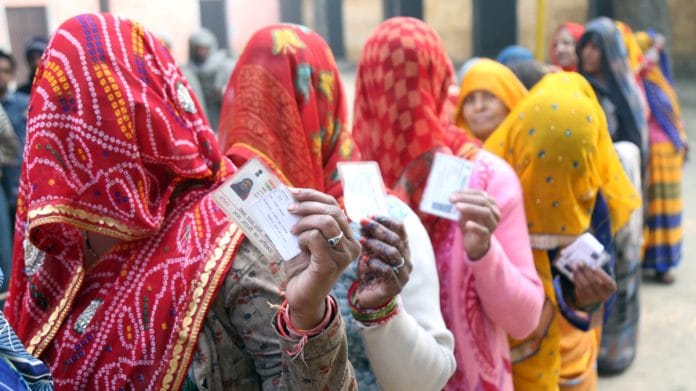New Delhi: As the world enters 2024 with two major ongoing conflicts, in Ukraine and Gaza, biting inflation and the arrival of artificial intelligence, the greatest risk comes from misinformation — particularly, to India, shows the 2024 Global Risks Report released by the World Economic Forum (WEF).
The annual report, released Wednesday, is based on the Global Risk Perception Survey conducted by the WEF among 1,500 experts in academia, business, and government.
Misinformation and disinformation – which threaten to increase distrust in society – were found to be the number one global risk in a short-term period of two years. They were also seen as the most severe risk in India for the next two years, as the country goes to polls in 2024.
Environmental risk was the highest risk category overall with 66% of respondents choosing it, and it also seemed to pose the biggest threat over a long-term period.
The report for 2024 “highlighted a predominantly negative look” for the coming year, as over 50 percent of respondents said there was a moderate risk of a global catastrophe in the next two years. The report pointed out that the world was just coming in from a year of protests, riots, and violent conflicts, not to mention extreme heat and floods in some parts.
“An unstable global order characterised by polarising narratives and insecurity, the worsening impacts of extreme weather and economic uncertainty are causing accelerating risks – to propagate,” said WEF managing director Saadia Zahidi in a press statement.
Misinformation – polarisation, social media
According to the study, misinformation and disinformation dominated the severe risk list because of the increasing sense of polarisation in the world. It found that after extreme weather events, AI-generated misinformation was the next selected risk category with 53% respondents’ choosing it.
Along with India which has its national elections in 2024, around 2 billion people in other countries too will go to polls over the next two years. The report said, “The presence of misinformation in these electoral processes could seriously destabilise the legitimacy of newly-elected governments.”
The reason misinformation has become a potent threat is also attributed to social media – the ability of social media platforms to monitor disinformation is likely to be “overwhelmed”, according to the report. Additionally, there was the threat of AI-generated misinformation, which, the report said, was getting harder to identify.
Youth more concerned about environment
Environmental risks, on the other hand, have remained in the top 2 most severe risks, similar to the 2023 report. Interestingly, the report found that younger respondents ranked environmental risks much higher than older respondents did in terms of severity. Moreover, while respondents from civil society and government ranked environment risks high in the short term, other respondents from the private sector viewed it more as a long-term risk.
Apart from misinformation and climate change, another persisting risk was posed by economic uncertainty and inflation. The increased cost of living is expected to strain “low and middle-income countries” in 2024, the report found.
Artificial intelligence is also another reason for economic uncertainty, as technological advances will “create a new set of winners and losers.”
In the face of global crises from multiple ends, the report cautions that cooperation will be difficult and come under pressure. However, the report recommends local action to deal with the global challenges and says localised investment will help regulate the impact of those risks. It also prescribes international and regional collaboration but stresses that individual actions may have more impact than expected.
John Scott, Head of Sustainability Risk at Zurich Insurance Group, one of the partners of the report, said in a press statement, “The world is undergoing significant structural transformations with AI, climate change, and geopolitical shifts. The individual actions of citizens, companies, and countries can move the needle on global risk reduction, contributing to a brighter, safer world.”
(Edited by Tikli Basu)
Also read: Cut emissions, save $2 tn — ahead of Davos, WEF report on how businesses can boost energy efficiency






